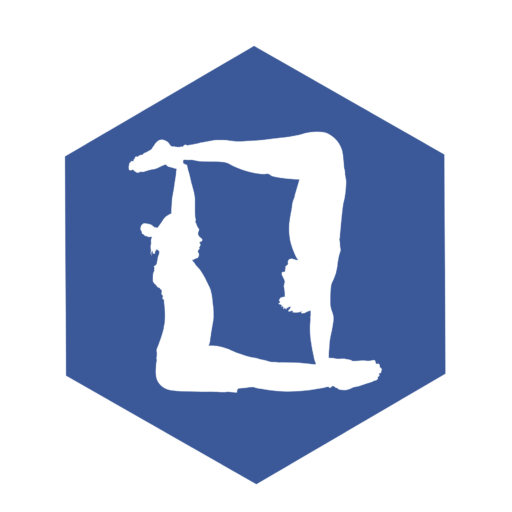
Close





A Living Document
Core values are the principles guiding our interactions and behaviours within our partner acrobatics community. The values are not just abstract concepts; they are actionable standards we aim to uphold in our practices. They represent the ideals we strive towards to set a foundation for a supportive and thriving environment, fostering open engagement and collective growth.
Respect
Self-expression, tolerance, and autonomy: Encourage freedom of expression while fostering tolerance and respecting individuals’ autonomy to make adjustments as needed.
Communication & knowledge sharing: Promote open communication, active listening, and the sharing of knowledge. Acknowledge and respect when someone states a boundary on capacity or time.
Safety
Prioritize emotional and physical safety: Always prioritize psychological, emotional, and physical safety in all practices and interactions, ensuring an environment where everyone feels secure.
Personal responsibility and communal education: Encourage understanding of risks, promote communal safety education, and foster discussions about potential concerns.
Empowerment and communication: Empower individuals to voice safety concerns and be receptive to others’ safety opinions, emphasizing that it’s always safe to say ‘no’ or ask for an adjustment (i.e., skill regression, repetition, spot, partnership).
Communication
Create an environment where people feel heard: Foster an atmosphere where everyone feels their voice matters, recognizing the importance of both verbal and non-verbal communication. Empower oneself and others to say “no” or ask for an adjustment..
Communicate needs and address safety concerns: Take responsibility for clearly expressing your wants and needs. Be mindful of how to address situations where someone doesn’t feel safe.
Respect boundaries and presence: Acknowledge others’ presence without imposing expectations, while always respecting personal boundaries and the distinction between training and playing.
Play
Build connections through shared moves and familiarity: Commit to giving your partner(s) full attention, ensuring that connection is of high priority. Embrace the opportunity to play, have fun, explore movement, and foster a meaningful connection.
Differentiate between playing and skill-building: Encourage participants to distinguish between playing for fun and focused skill-building, fostering communication and expression of intentions.
Inclusion
Eliminate discrimination: Question biases and educate oneself to better understand how diverse experiences and perspectives of others in the community can influence interactions and opportunities.
Encourage self-expression and growth: Support partner(s) to express themselves freely while being mindful not to cause harm. Navigate growth, healing, and apologies if hurt or harm occurs, with opportunities to prevent repetition.
Empower self-advocacy: Encourage individuals to gauge their energy, capacity, goals, and attention, and to share their state with others when possible.
Actively include others: When you have the capacity and time, take the initiative to welcome and include others in practices and activities. This ensures that everyone has opportunities to participate.
Ongoing Consent
Ensure ongoing consent and communicate capacity: Clearly communicate your physical and mental capacity, such as if you are tired, sore, or under the influence of substances.
Practice inner consent and clear communication: Regularly check in with yourself for accurate self-assessment.
Communicate as a spotter: Clearly express your experience, technique, and communicate touch points during spotting.
Community Responsibilities
NOTE: the community responsibilities have not yet been discussed thoroughly in a meeting. These points were compiled from the survey. We are open to more points and added clarification.
Community responsibilities are the commitments and duties that individuals have to uphold the group’s values. By doing so, it contributes to the well-being, inclusivity, and positive environments of that community. These responsibilities foster trust, mutual respect, and a sense of shared purpose amongst participants.
Vancouver Network of Care (NOC): This organization is aimed at providing a collaborative reporting and support system that works to increase safety in our community.
Create inclusive, equitable, and supportive environments: Support a non-judgmental atmosphere where anyone with positive intentions is welcomed and has the opportunity to participate in the ways they desire.
Actively work towards eliminating discrimination and create more equitable and supportive environments for the diverse partner acrobatics community.
Uphold the right to choose which arco partners to play with while aiming to be inclusive as a community.
Provide foundational skill education: Share essential skills and knowledge with others to create a supportive environment where everyone can build confidence, learn safely, and practice informed consent.
Spotting standards: Establish a common understanding of spotting, model safe behavior, and offer workshops on spotting techniques. Encourage the sharing of skill progressions to support safe learning and practice.
Build connections and communication skills: Practice and model respectful and healthy communication skills, including introductions, asking for consent, explanations, encouraging honest and respectful exchanges, and providing regression/progressions as needed to help people feel comfortable. Building connections by understanding every interaction is a co-creation.
This document was made in collaboration with the Vancouver AcroYoga Community, with inspiration from AcroYoga Montreal and Austin. We compiled these values from an online survey which was then shared and discussed in-person at a community meeting on August 28, 2024. Once created, the document was shared with the widespread community for feedback. This is a living document which will continue to be expanded upon as our community grows.
